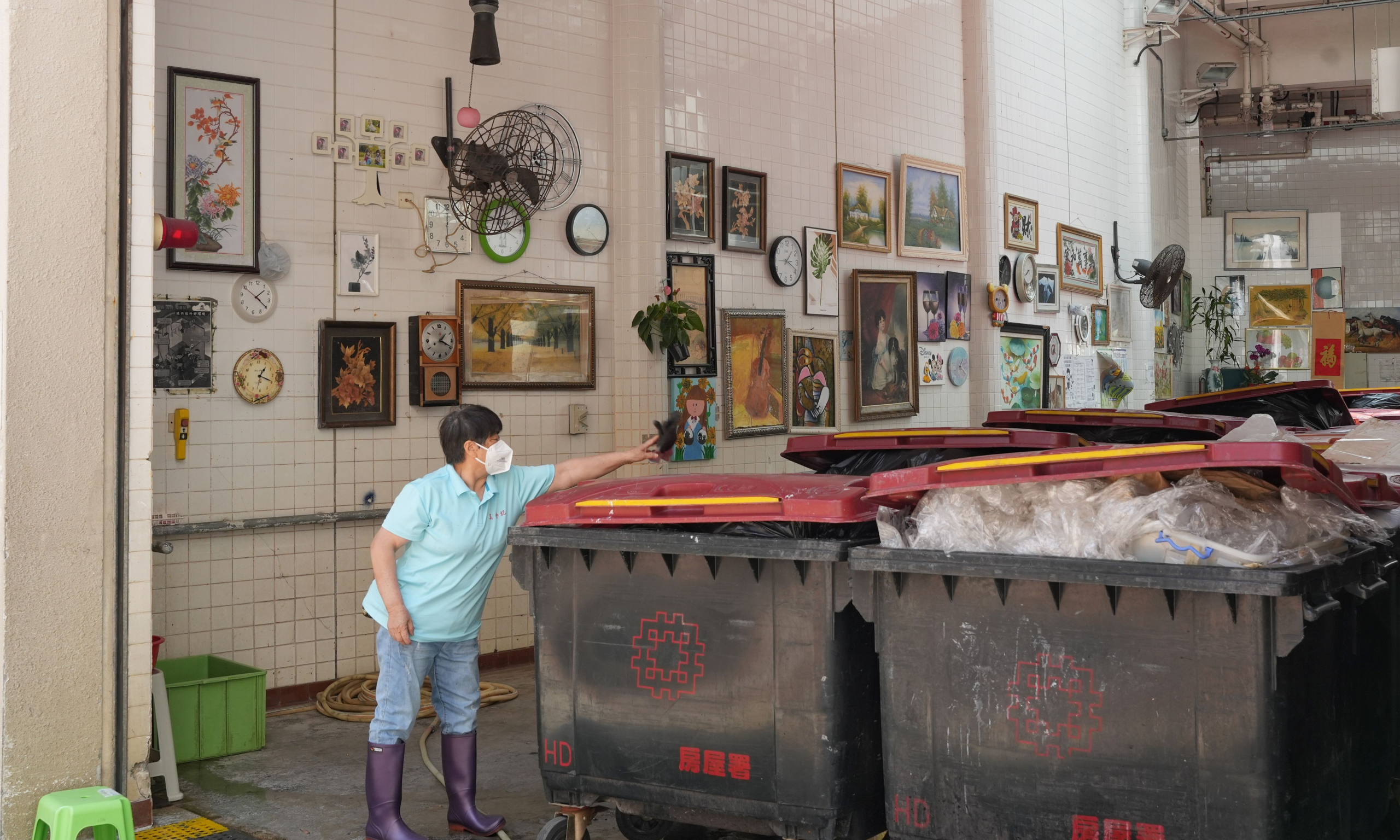Workers hung up paintings at a refuse collection point in Kwai Chung Estate, Hong Kong
Photo: Kyle Lam/HKFP
A popular grassroots art space in the trash room of the Hong Kong public housing complex Kwai Cheng Estate has closed down following pressure from the city's housing department. As first reported by Hong Kong Free Press, the department were concerned that the increased flow of visitors to the space would obstructing sanitation workers after the makeshift gallery went viral online in early March.
Sanitation workers at the housing estate started several years ago hanging paintings that they found in the trash, eventually filling the walls with an eclectic collection. “I believe lots of people knew this place but kept it quiet—as a common agreement to keep it away from the Hong Kong bureaucracy,” says the artist Bouie Choi.
Choi first chanced upon the industrial trash art room in summer 2022 and later painted it for her recent exhibition at the gallery Grotto SKW about the city’s public places. Suddenly in early March, “the trash collector’s reports were everywhere on social media, people sharing and celebrating such a great, down-to-earth gallery,” Choi says. But the collection was removed and discarded days later.
Though the closure of the trash art gallery comes amid a spate of cases of police hassling street vendors, the "government itself has not directed the removal", says the critic and historian John Batten. “It is housing estate managers who ordered the removal, as people started visiting and they didn't want that…for all sorts of reasons, hygiene, the staff being asked inane questions by people with iPhones. The ‘gallery’ has been there many years and it was social media attention that killed it."
Batten, who is also a prolific street photographer, says that the trash room continued the tradition of Hong Kong’s private recycling shop proprietors maintaining “a small arty or memorabilia display on a wall” of their best finds.
Broadly, he says, in Hong Kong "there is an intolerance, and has been for years, of grassroots artistic expression. It runs throughout the decision makers, from government people to museum curators. It is always about control of public space". Batten describes a history of authorities disliking "poor people using space, starting with refugees from China in 1950s, squatting on the hillsides. And that space is Hong Kong’s only resource. It has been since 1842."
The space's closure feels ironic, Choi says, as it coincides with art world VIPs jetting into Hong Kong for Art Basel (23-25 March). It illustrates how “the government mindset is too different from common peoples’—from their interpretation of Hong Kong to the idea about art, the meaning of a dynamic city." She cites the widely derided slogan "Hello Hong Kong", cheerily promoting the resumption of tourism to the city as soon as zero Covid travel restrictions lifted. While the return of international galleries for the art fair buoys the art market, she says, "I wonder if we can also expand the freedom and space for art by the people at the same time."

